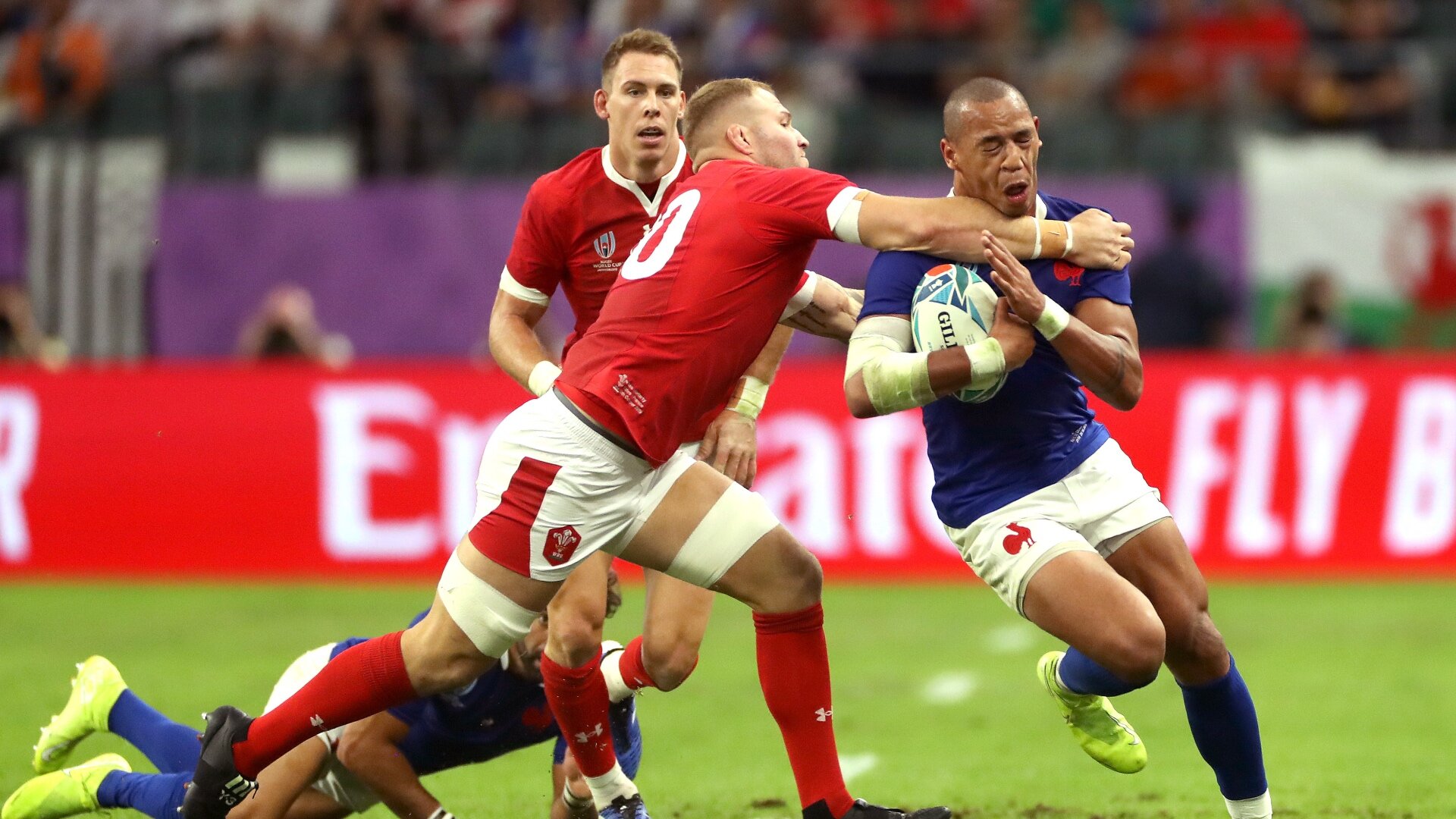'I was thinking to myself: If he gives me a red card, this is the end of me'

Ross Moriarty has revealed he thought it would be “the end of me” had referee Jaco Peyper sent him off in Wales’ World Cup quarter-final against France.
Moriarty had only been on the pitch for 90 seconds, replacing an injured Josh Navidi, when he was yellow-carded for a high tackle on Les Bleus centre Gael Fickou.
Wales went on to triumph 20-19, with No8 Moriarty scoring the winning try – but only after an incident that left him sweating, especially when Peyper called in captain Alun Wyn Jones.
“I was just thinking, ‘Please, please don’t be a red’. I knew how bad that would be for the team,” Moriarty said. “I have been in that situation before and it is not a nice feeling. I never go into a game intending to do anything that would get me a card or put the team at any risk of not winning.
“That was definitely a big moment. I had only been on for 90 seconds and I was thinking to myself: ‘If he gives me a red card, this is the end of me’. It was a mistimed tackle. I closed my eyes and thought he was going to run around me, but he stopped and ducked under me.
(Continue reading below…)
“It was very nerve-wracking then to come back on and make sure there were no more mistakes and no penalties. That’s what I did, and to be able to put the ball down (for a try) towards the end of the game was a very good feeling.
“It [the tackle] definitely wasn’t intentional. I didn’t cause any damage or injury, and it was nice for me to know I didn’t cause any damage. I talked to him [Fickou] after the game and he was absolutely fine. We had a good laugh.
“As soon as I realised I had hit him in the chin – I thought I had hit him in the shoulder – I was worried. I knew I had to come (back) on and be very, very squeaky clean and make sure I didn’t do any more damage to the team and myself. That was on my mind.
The bereaved Robin McBryde is showing tremendous character to help keep the Wales show on the road at the World Cup https://t.co/YiYFlE6cuB
— RugbyPass (@RugbyPass) October 22, 2019
“I was thinking, ‘Please, no-one come near me’. Sometimes people slip up in tackles, players duck and dive. It’s a contact sport, it’s inevitable sometimes. Fortunately, there were no other incidents in the game.”
Moriarty has similarly vivid memories of his match-clinching touch down, which followed a concerted spell of pressure near France’s line. “I was running towards the ball and just thinking, ‘I can’t mess this up’,” he added.
“I didn’t even want to reach out in case someone came from nowhere and kicked the ball out of my hands, so I just landed on my head first and got the ball under my chest to make sure no-one could come in and get it. It was probably the easiest try I have ever scored, but probably the most nervous I have been scoring one.”
A major blow for Wales ahead of their World Cup semi-final against South Africa. https://t.co/ANQbfilDaL
— RugbyPass (@RugbyPass) October 21, 2019
Moriarty is set to take hamstring injury victim Navidi’s place against semi-final opponents South Africa on Sunday. His father Paul and uncle Richard both played when Wales faced New Zealand in the 1987 World Cup semi-final, so another red-letter day awaits the Moriarty family.
“We all know the All Blacks are very physical, but South Africa are renowned for being a physical team, too,” he added. “This is a game I look forward to. I know what their forwards thrive on, which is being physical, and that’s what I thrive on as well. Some players go hiding when it gets tough, but I think I get better in those situations.”
– Press Association
WATCH: Former Wales international Jamie Roberts sits down with RugbyPass in an episode of Rugby World Cup Memories














































































